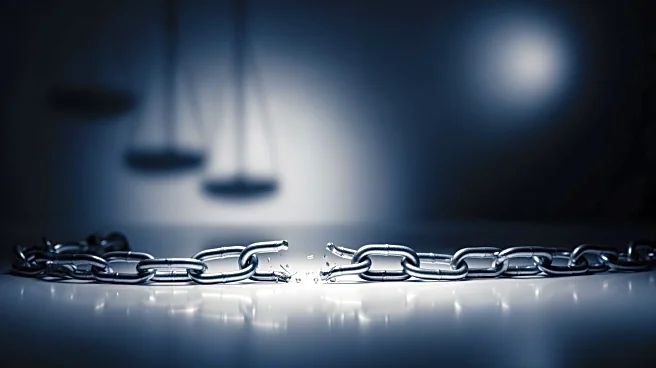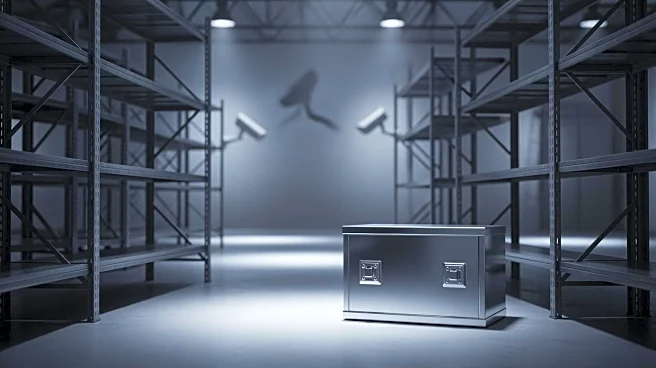What's Happening?
Shilo Sanders, former Colorado football star and son of Colorado coach Deion Sanders, is facing a new complaint in his bankruptcy case. The trustee, David Wadsworth, has accused Sanders of making unauthorized
transfers totaling approximately $250,000 from his company Big 21, LLC's bank account. Sanders filed for Chapter 7 bankruptcy in October 2023 to address a default judgment of $11.89 million from a lawsuit. The lawsuit stemmed from an incident in 2015 where Sanders allegedly attacked a security guard at his school, leading to severe injuries. The trustee claims Sanders violated the automatic stay, which prevents him from controlling assets that should belong to the bankruptcy estate. Sanders had entered into name, image, and likeness (NIL) contracts through Big 21, LLC before filing for bankruptcy. The trustee is seeking to recover the unauthorized transfers and additional funds related to prepetition NIL contracts.
Why It's Important?
The complaint against Shilo Sanders highlights the complexities and legal challenges involved in bankruptcy cases, especially when significant assets and contracts are involved. The outcome of this case could impact Sanders' financial future and his ability to discharge the substantial debt owed from the lawsuit. It also underscores the importance of adhering to bankruptcy laws and the role of trustees in managing and protecting the assets of the bankruptcy estate. The case may set a precedent for how NIL contracts are treated in bankruptcy proceedings, affecting other athletes and individuals with similar financial arrangements.
What's Next?
The court will need to determine whether the transfers made by Sanders were indeed unauthorized and if the funds from NIL contracts should be considered part of the bankruptcy estate. Sanders is also facing two additional complaints from the creditor, John Darjean, who argues that the debt is not dischargeable due to its origin from a willful and malicious injury. If the court rules in favor of Sanders, Darjean may only receive a fraction of the owed amount through the bankruptcy estate. The legal proceedings will continue to unfold, with potential implications for Sanders' financial obligations and the treatment of NIL contracts in bankruptcy cases.
Beyond the Headlines
This case raises questions about the ethical and legal responsibilities of individuals in bankruptcy, particularly those with significant public profiles and financial dealings. It also highlights the challenges faced by athletes in managing their finances and legal obligations, especially when past actions lead to substantial legal judgments. The intersection of sports, law, and finance in this case may prompt discussions on the need for better financial education and legal guidance for athletes.








